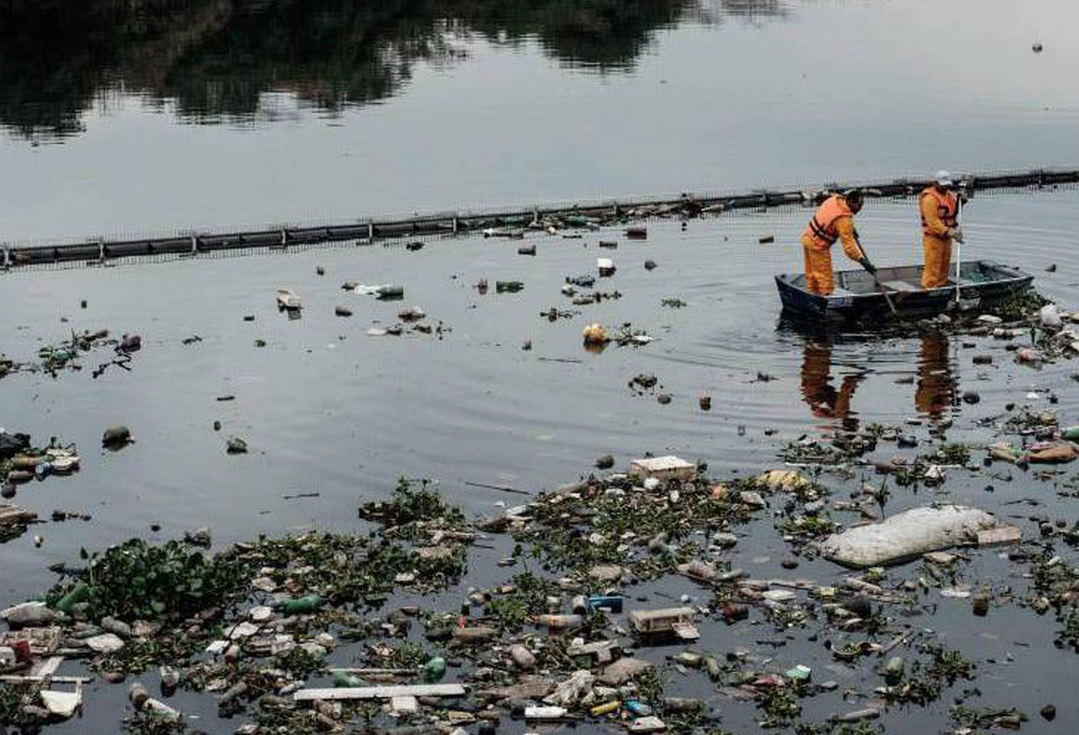As nations work to meet the Sustainable Development Goals by 2030, the term “circular economy” has gained increasing attention as a tool that can present solutions to some of the world’s most urgent challenges. A circular economy is an economic system that uses waste as a resource, reusing it over and over again, as opposed to trashing it (think: recycling plastic). One circular economy approach that can be used to address a growing regional crisis is the reuse of wastewater.
Across the Americas, freshwater continues to decline due to population growth, overuse, and the effects of climate change. Even though certain at-risk communities face direct water scarcity challenges more than others, the effects will ripple across all aspects of society, from health and hygiene to nutrition and food security to the economy. And yet, wastewater recovery and reuse facilities have an enormous potential to close the water stress gap in the region. Moreover, wastewater is a valuable resource from which water, energy, and nutrients can be extracted to help meet the population’s demands for water, energy, and food.
The problem is that, according to the World Bank, only 30 to 40 percent of the Latin America and Caribbean (LAC) region’s collected wastewater is treated. Lack of political will, restrictive and fragmented legal frameworks, absence of knowledge and capacity sharing across borders, and negative social perceptions are just a few of the barriers limiting the expansion of wastewater treatment and reuse in LAC.
However, these challenges can begin to evaporate if national and local leaders, industry specialists, innovative scientists, community groups, and other relevant stakeholders work together across borders through science diplomacy. Diplomacy surrounding water has a long history as many sources of water are shared across borders. Given the risk for transborder conflict, mass migrations, and economic turmoil if water shortage predictions come to fruition, it is incumbent upon leaders and experts in the region to leverage science diplomacy to promote wastewater reuse now.
Using the World Bank’s Water Resource Note, Wastewater: From Waste to Resource in a Circular Economy Context, as a guide, a multicountry diplomacy forum should be established, convening a transdisciplinary group of policymakers, government officials, wastewater industry specialists, scientists, and other relevant stakeholders from throughout the Americas to share innovations and gaps, while initiating a policy path towards committing to reusing wastewater.
Nations can use this forum to work together in building capacity, while leveraging existing networks. Higher income nations with the relevant scientific experience and technology should provide financing, mentorship, cross-training, and contextually- and resource-appropriate infrastructure support. The forum can also bring national and cross-border policy discussions up to date with the current trends and innovative, less infrastructure-heavy approaches. More importantly, the forum can present a space to have an open dialogue regarding cultural limitations or public perceptions towards wastewater reuse as this likely varies across cultures and communities.
The ultimate objective is to build a community of practice across the Americas to support wastewater reuse as a shared policy agenda, seeking windows of opportunity for diplomatic solutions. In the end, it is about relationship building over a shared concern and developing national strategies on water that take into account our neighbors’ needs.
As water is an essential element for a healthy, productive life, it is also essential that we revisit the historical diplomatic agreements and work across borders to reframe them, build on them, and foster new agreements with a future of less in mind. After all, as the author Robert Kandel reflected in his book Water from Heaven, “Whenever you eat an apple or drink a glass of wine, you are absorbing water that has cycled through the atmosphere thousands of times since you were born.”
Coauthors: Nathalia Trejedor, PhD (Panama); Odiney Alvarez-Campos, PhD (USA); Osawai John, PhD (Barbados); Sebastián Riera, PhD (Argentina)











